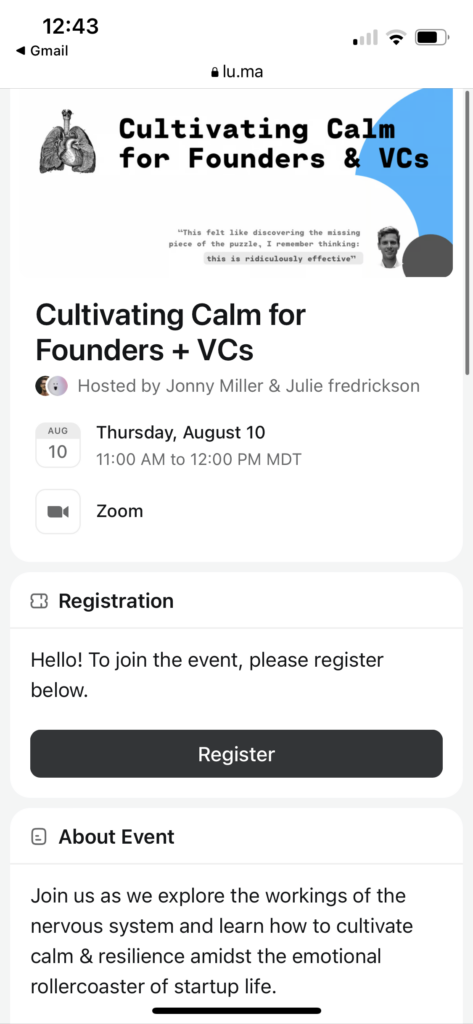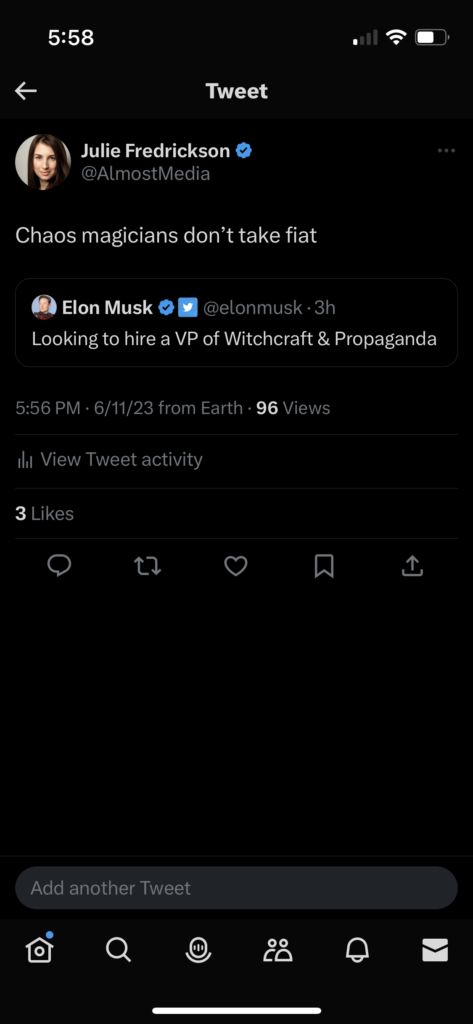I’d like to tell you a short story about my email. I don’t really check it anymore. Like at all. I would like to have a functional inbox but it got out of hand. How out of hand you ask?
As of this morning I had more than 500,000 unread emails in my Gmail. Honestly if I worked at Google I’d be a little freaked out by that number. That seems like a lot of emails. How did that happen you might ask? Slowly and then all at once. Like most bankruptcies.
Let’s start at the beginning. I’ve had a Gmail account since 2004. 1GB of free storage for email? It was 100 times what competitors offered. I knew I’d have to transition out of my university email when I graduated so I kept.
I’d say it was the most functional place in my digital life until 2010 or so. I basically never left my inbox, used Gchat constantly with all my friends, and organized my life around it. Gmail served first central hub for my professional digital identity. It was just where I spent my time.
I worked in commerce and media in I thought it wise to subscribe to brands emails so I could really monitor e-commerce for work. Then I started a cosmetics brand during first cohort of direct to consumer brands. Like all startups we used Google Professional services. So I routed it into one easy Gmail view. Don’t do that incidentally. Then long story short I went on medical leave in 2019.
I’d like you to imagine the J curve on what happened next. Because I have an an older account, and one that used to be tightly managed, I didn’t really notice that I’d converted to a high volume inbox. But you can guess what happens when you stop monitoring constantly. Maybe this post should have had a trigger warning.
It seemed manageable when I was a workaholic hustle grinder. But the second the email beast wasn’t being ridden hard it went feral. Half a million emails feral.
There are so many culprits I could point to in the destruction of my inbox. The arms race for extracting value from email was very much on in the middle of the decade, but it’s gone into overdrive during the pandemic years.
If I thought my email was a little messy when I was girlbossing, it’s nothing compared to the what it looks like under the relentless onslaught of professionally optimized direct marketing.
But there are other culprits. You probably have a social tab like me. I get a lot of automated and social media alerts that were easy to check and delete when I lived inside my email.
But there isn’t a social media platform you can imagine that I didn’t have a profile on. And the alerts add up quickly.
LinkedIn is notorious but I’m also a Twitter power user and maintain a ton of Discords. And then there are social platforms you join and forget about. Yes include OnlyFans. Don’t worry that’s recent and has no content. All those sign ups add up quickly if you don’t monitor. Every god damn social service I have strewn across the internet somehow ends up in Gmail.
The good news is I have a friend who is helping me sort it out. She signed me up for Sane Inbox. The number of emails in that half million that looks like it needs attention? About 1,400. So I will start making an attention payment plan on those. But if I didn’t have nearly two decades of data dedicated to Google I’m not sure if I’d want to dig out.




